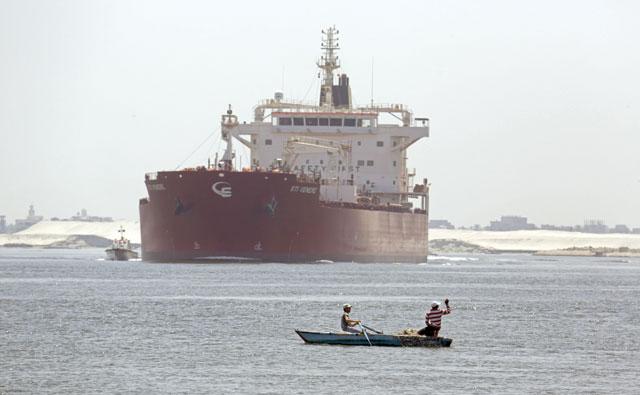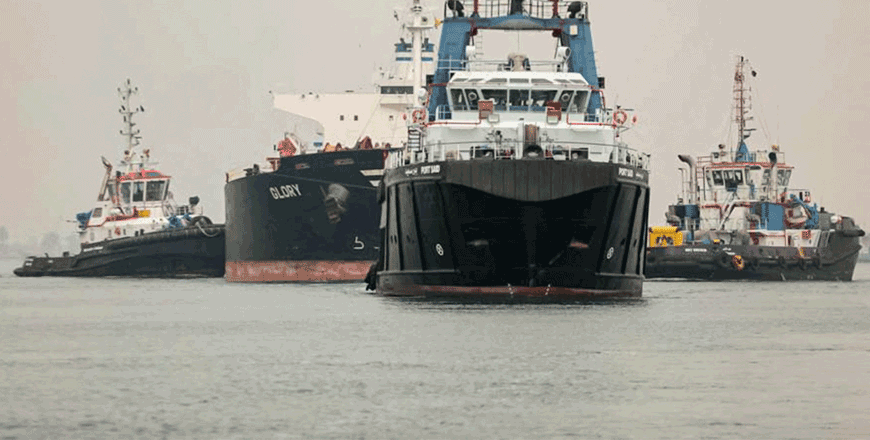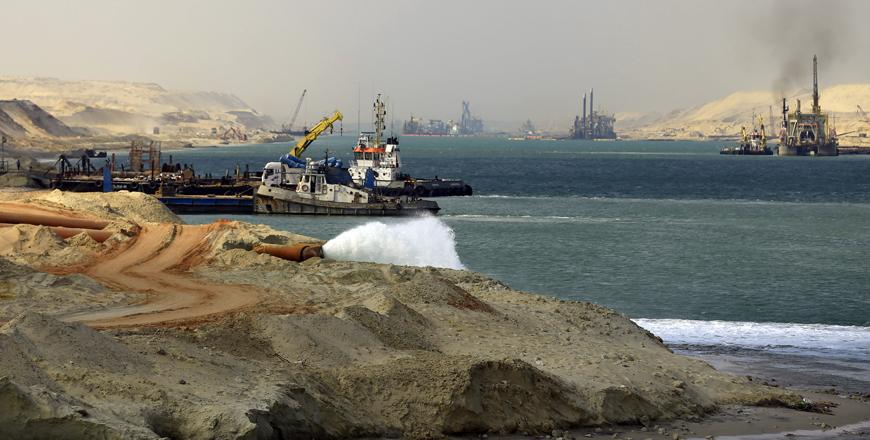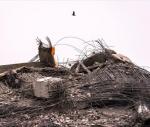You are here
Egypt discreetly marks Suez Canal’s 150th anniversary
By AFP - Nov 12,2019 - Last updated at Nov 12,2019
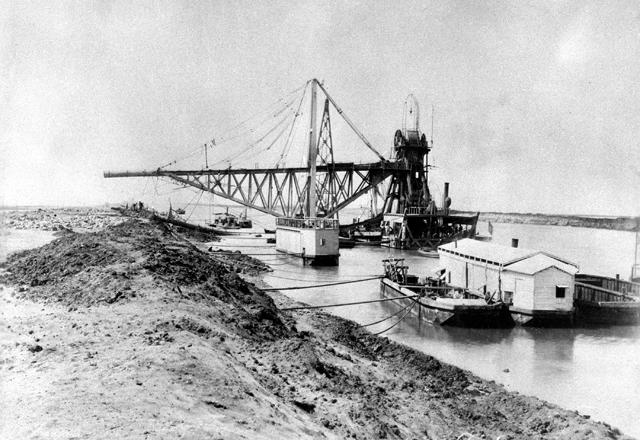
This file photo taken in 1869 shows the digging of the Suez Canal in Egypt (AFP photo)
ISMAILIA, Egypt — Since the Suez Canal was inaugurated amid pomp and ceremony 150 years ago, it has become one of the world’s most important waterways. But its anniversary will only be discreetly marked in Egypt.
The man-made canal was excavated between 1859 and 1869, in an ambitious project to connect the Mediterranean to the Red Sea, and cut shipping times for growing international trade from Europe to Asia.
The Suez Canal is “not a prerogative of one nation”, declared Ferdinand de Lesseps, the French diplomat credited with masterminding the project, drawing from the dreams of the pharaohs who dredged a similar channel 4,000 years earlier.
“It owes its birth to, and belongs to, the aspirations of humanity,” he said in an 1864 speech.
A million Egyptians, using camels and mules as beasts of burden, laboured over the decade-long construction, according to official figures. And tens of thousands died in the process, experts say.
The first ships sailed down the 164 kilometre canal on November 17, 1869, with hopes that fair winds would permit a faster route to and from Asia, avoiding a lengthy and perilous circumvention via the tip of southern Africa.
But the waterway’s history has followed the turbulent ebbs and flows of the volatile Middle East region.
Its watershed moment came in July 1956. Egypt’s iconic late president Gamal Abdel Nasser, a staunch defender of Arab unity, defied British and French interests and nationalised the Suez Canal Company which ran the waterway.
The decision, which saw Nasser’s popularity rise at home, triggered an international crisis. France and Britain — countries which both controlled the company at that point — as well as Israel attacked Egypt around three months later.
The canal also served as a frontline during Arab-Israel wars in 1967 and 1973.
‘Record-breaking’ asset
Today the vital sea route is managed by the Suez Canal Authority and was expanded in 2015 to accommodate modern, larger vessels. It has grown into a major economic asset, providing passage for 10 per cent of all international maritime trade.
But the region’s volatility is never far away. Running along the southern rim of the Sinai, the canal is today heavily secured by the Egyptian army which is battling a long-running insurgency against Islamist militants in northern Sinai.
Dug in the 19th century using “rudimentary tools”, today the waterway has become “a lifeline to Egypt”, Osama Rabie, head of the authority told AFP.
In 2015, Egyptian President Abdel Fattah Al Sisi staged a grand ceremony for the opening of a new 72 kilometre lane parallel to the canal after 12 months of excavations.
The authority has since boasted new cargo and transit records saying the new lane has facilitated the crossing of larger shipping convoys and decreased transit times.
In August “a record breaking number” of 81 ships carrying a total of 6.1 million tonnes transited the canal in one day, the authority said.
“The tonnage has lept,” according to Jean-Marie Miossec, shipping specialist and professor at the University Paul Valery-Montpellier.
He believes the growth is linked to an “increase in container traffic between Asia and Europe as well as Europe and the Indian subcontinent”.
“By expanding the canal, Egyptian authorities offer augmented potential, especially with regard to vessel sizes and transit time,” he said.
Revenues for the fiscal year 2018-2019 reached $ 5.9 billion, up 5.4 per cent from the previous year, the authority said in August.
And Egypt is planning for revenues to rocket to $13.2 billion in 2023.
Stamps, museum
Sumptuous feasts and banquets even attended by French Empress Eugenie, wife of Napoleon III, were held during the initial inauguration in 1869.
But in stark contrast, no celebrations are planned for the canal’s 150th anniversary.
Arnaud Ramiere de Fortanier, from the association in the memory of Ferdinand de Lesseps and the Suez Canal, believes the anniversary is “bit tricky”.
“The issue of 1956 went wrong,” he said, maintaining that for the company’s former shareholders the entire Suez crisis was mishandled by all sides and was a “disaster”.
Rather than highlighting the canal’s pre-1956 history, Egyptian authorities are preferring to underscore the canal’s current performance and its contributions to the country’s battered economy.
“Everyone writes history their own way,” said French Ambassador Stephane Romatet, noting Egyptians only started benefitting from the canal after the 1956 nationalisation.
In Egypt and France, stamps bearing images resembling de Lesseps have been printed to mark the anniversary.
And a conference titled “The Suez Canal: A place of memories” is to be held in Egypt’s famed Bibliotheca Alexandrina on November 13.
Egypt has also dedicated a museum, currently under construction, to the canal in the city of Ismailia at the historic premises of the Suez Canal Company. But no opening date has yet been set.
Related Articles
Bulldozers push earth and dredgers spit mud round-the-clock at Egypt's Suez Canal in a race to quickly expand the strategic waterway for two-way traffic, a project trumpeted by President Abdel Fattah Al Sisi to revive both the country's damaged economy and visions of nationalist glory.
ISMAILIA, Egypt — Suez Canal maritime traffic was “normal” on Monday after a cargo vessel carrying Ukrainian grain ran aground but was then
ISMAILIA, Egypt — Egypt's New Suez Canal will open on August 6, its overseer said on Saturday, a project President Abdul Fattah Al Sisi sees


